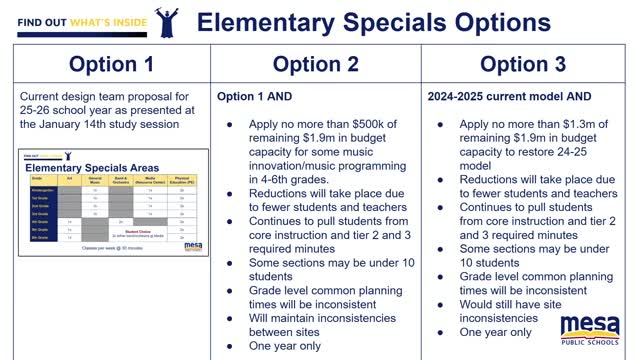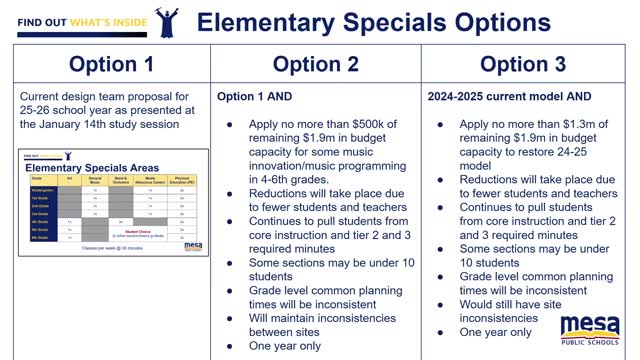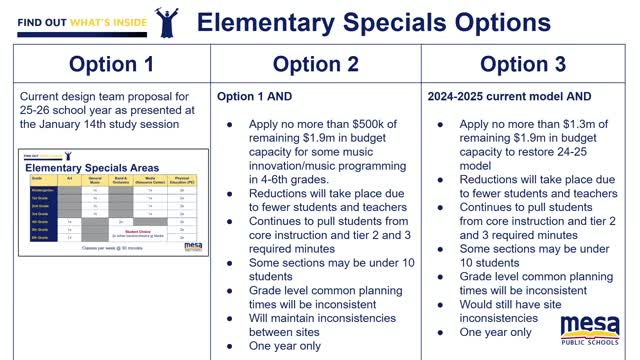Article not found
This article is no longer available. But don't worry—we've gathered other articles that discuss the same topic.

Votes at a glance: Mesa Public Schools governing board actions, Jan. 28, 2025

Board hears extended discussion on high‑school academies, block scheduling and CTE funding; no final vote

Mesa board approves certified reduction in force for 2025–26 amid budget shortfall

